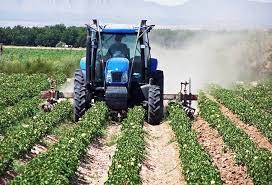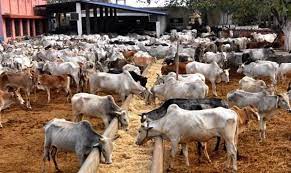The National Agricultural Seeds Council (NASC), Obafemi Awolowo University (OAU), the National Center for Genetics Resource Bio-technology (NACGRAB), National Bureau of Statistics, (NBS) and other stakeholders have commenced a two-week training of key participants in the IMAGE project on Pre-survey, data analysis while institutionalising monitoring of variety adoption using genotyping.
The project that is being supported by Bill and Melinda Gates Foundation with over $30,000 will see 15 experts from different Nigeria institutions benefiting.
Speaking during the opening ceremony of the training in Abuja recently, the IMAGE Project Country Lead for Nigeria and the Senior Technical Adviser to the Director General of Agricultural Seed Council, Dr Folarin Sunday Okebola, said the training will ensure the capacity of Nigerians is built so that the project will impact the agricultural sector positively, especially the seed system.
He said: “We are doing this project with the support of the Bill and Melinda Gates Foundation and we have a centralized function that is headed by Context Global Development based in the United States and they will also be part of this training virtually today.
“The training will bring about sanity in the seed sector, also in research because it will inform researchers on what further development they need to do on what they have released in the past or what they developed in the past.
“It will also encourage investors to do more because the investor will also know okay, I have spent so much money on this variety, this variety is doing well, and people need improvement and this is where we want to improve and they can also finance future investment into those areas.”
The lead resource person from EDI Global, UK, Dan Dunter, said the experts will be taken through
processes of data collection projects.
“We are basically taking everyone through the journey of a data collection project. So when you are collecting data you need to configure the questionnaires, you need to also collect the data, clean the data, and process it and then analyze and write the report.
“So basically, we are taking a step by step approach through all of those activities, and taking time for all our trainees to upscale and learn new areas because they are all researchers, they all have really good experience. So we are just here to support them in learning some new skills.
“Increasingly, data collections, we now use something called CAPI which is Computer Assisted Personal Interviewing. So, maybe 10, 20 years ago when you wanted to collect data, you needed to get a pen and paper, but now we don’t use tablets and software on the tablets. So we will train the staff in learning how to configure and programme questionnaires, and then how to go off and implement the data collection using
the CAPI.
“The software enables more sophisticated and more robust data collection and it is one of our missions at EDI Global is to support the quality of the collection of high quality data., and why is high quality data important is because, you know good data means good analysis means good decision making means good policy,” he said.
Dunter said further that his organisation is working with the Seeds Council on data collection with farmers on the different types of maize and cassava.
Also, one of the lead partners, and a Professor of Agricultural Economics, from Obafemi Awolowo University, Prof Adebayor Akinola, said the training will enhance the implementation of the IMAGE project in Nigeria.
According to him, there are no fingerprinting, image captures of the real adoption of improved varieties in the country, and that the new technology is one of the first of its kind that will really help in tracking the adoption of improved technologies in the country.
“And that is why it is very important, and it will solve key problems in really knowing how many have used the particular variety and how many have not used, and what policy thrust be brought in to improve the adoption of improved varieties in the country,” he said.




